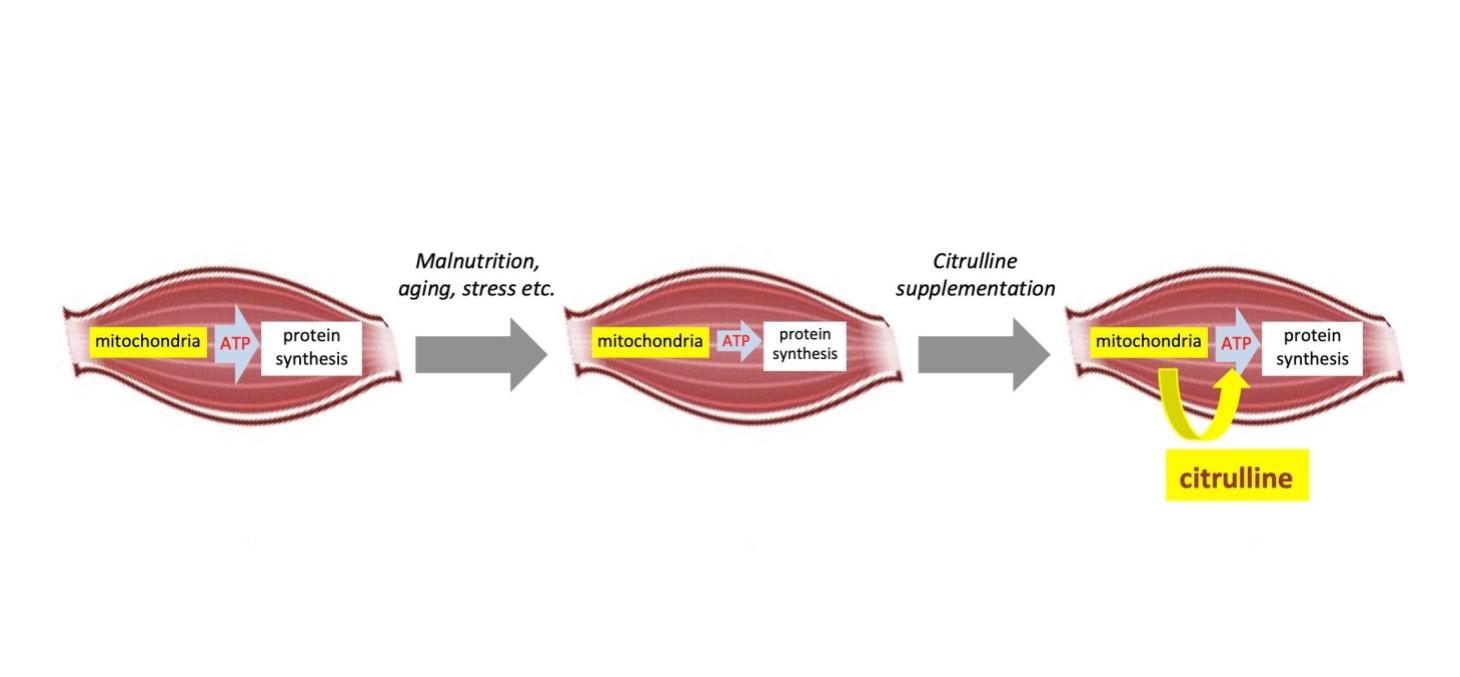- Share
- Share on Facebook
- Share on X
- Share on LinkedIn

Citrulline supplementation: rewiring of energy flow to stimulate protein synthesis
Citrulline is a promising therapeutic for sarcopenia and known to stimulate the highly energy-dependent protein synthesis in muscle. Here we show in cultured mouse myotubes that citrulline stimulates protein synthesis under limiting conditions like amino acid deficiency or energy stress. However, this increase was due to enhanced energy status (ATP/ADP ratio) or mitochondrial respiration, but to a larger share of mitochondrially generated ATP allocated to protein synthesis. Neither DNA synthesis or activities of sodium or calcium cycling ion pumps recieved a smaller share of ATP. We conclude that citrulline increases muscle protein synthesis by specifically reallocating mitochondrial fuel to the protein synthesis machinery. Because ATP/ADP ratios and thus Gibbs free energy of ATP hydrolysis remained globally constant, this reallocation may be linked to decreased activation energies of one or several ATP (and GTP)-consuming reactions involved in muscle protein synthesis.
Reference:
Goron, A., Lamarche, F., Blanchet, S., Delangle, P., Schlattner, U., Fontaine, E., and Moinard, C. (2019) Citrulline normalizes muscle protein synthesis, once decreased by an energetic stress, by re-allocating ATP consumption to protein synthesis. J. Cachexia Sarcopenia Muscle (in press)
- Share
- Share on Facebook
- Share on X
- Share on LinkedIn